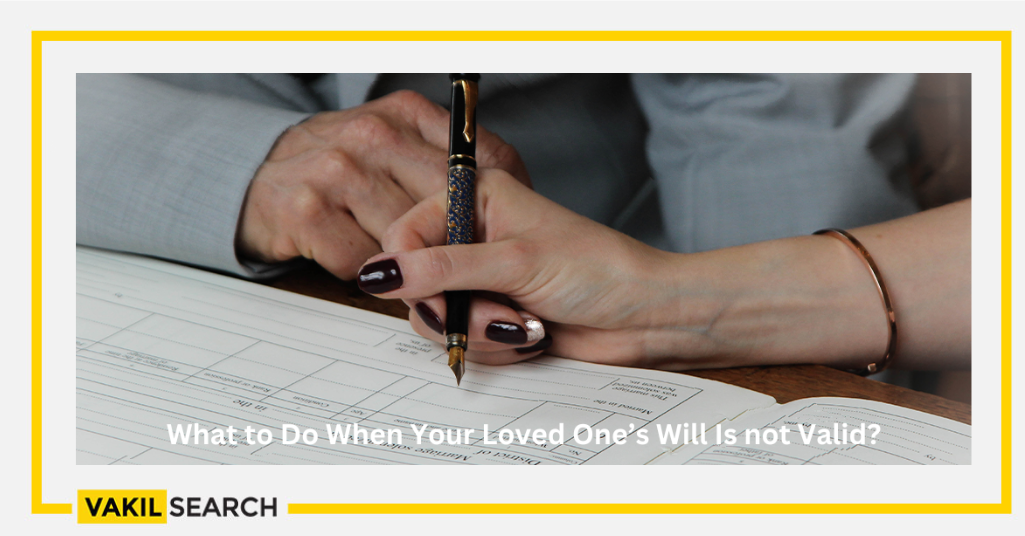Due to multiple reasons a will may be declared invalid by a court. Since an invalid will would have no legal effect, Intestate laws will influence the court's decisions.
A person may spend a lot of time creating a will, but what happens when your loved one’s Will Is not Valid? Nevertheless, the testator might not be aware that a court could declare a particular Will Is not Valid. The intestate laws will influence the choices of the court because a final will that is invalid would have no legal significance.
Trust & Will prioritizes helping individuals create a Will or Trust that is comprehensive, legally binding, and protected to ensure their legacy is rightfully passed on to loved ones. To avoid common mistakes and pitfalls, it is important to understand what makes a Will Is not Valid and what makes it legally binding. A Will is a final act that provides protection to your legacy.
Requirements For A Will’s Validity
A will must fulfill three fundamental requirements to be considered a valid legal document.
It Has to Be Put In Writing
The majority of the time, wills are drafted on computers and printed. (Older ones could have been typewritten.) On the other hand, it’s not impossible to have a will that’s entirely handwritten and still legally valid.
Confusion may arise when there is a combination of handwriting and pre-printed languages, such as on a fill-in-the-blanks form or a computer-printed will. A court is unlikely to enforce the alterations since it might be impossible to determine who made them or when because neither information is known.
It Needs to Have the Maker’s Signature and Date
It is necessary for the person who drafting a will to sign it and date it. It is acceptable for the will-maker to have instructed someone else to sign the document in front of witnesses if the will-maker was not physically able to do so. It’s also usual, but not necessary, for the person who created the will to have initialled or signed each page.
The majority of people use pen and paper to sign documents; however, as electronic signatures emerge, they might be seen on wills. Currently, a select few states permit electronic wills, which are wills that are maintained electronically and have electronic signatures. Few courts have permitted electronic wills despite the absence of a state law that would permit them.
Adult individuals must witness it
Witnesses are very important. They observe the will-maker signing the paper before signing it themselves, testifying that the person doesn’t appear to be under undue influence from anyone and appears mentally competent. All states require witnesses to be of legal age. The intent of the document to be a will must be known to the witnesses.
Not all states, but the majority of them, demand that witnesses be non-intestate individuals. Even in certain places, witnesses cannot be beneficiaries’ spouses. Any interested party who serves as a witness in a state that prohibits it will not be qualified to inherit under the terms of the will. On the other hand, the will’s other provisions will remain in effect.
When Does A Will Become Invalid?
The person presenting the will has the responsibility of proving its validity. The will must demonstrate to the court’s conscience that it is the final will of a willing and capable testator. Who is a testator who is free and responsible now? What makes a person ineligible to make a legal will? Let’s investigate:
Every adult with a stable mind and not a minor is free to dispose of their property of their own will through a will. Therefore, a will is legitimate if and only if:
Stable mind: The will must be written by a person who is in perfect mental health at the time of its creation. Therefore, a sane person cannot draught a will. However, if a person, let’s say one who has Alzheimer’s, is lucid when creating a will, he or she may do so. However, if the individual who made the will was intoxicated at the time, they could not have done so while being entirely sane.
Only Majors: In India, a minor (someone under the age of 18) is not allowed to prepare a will. To manage a minor’s property, a testamentary guardian is preferred.
Of Own volition: Any will that was obtained under coercion is invalid. It means that a son or daughter cannot legally compel (either psychologically or physically) their parents to write a will in their favour.
Only Own Property: Anyone can create a will, and it is frequently done without the assistance of a lawyer. Because of this, a lot of people wind up giving away even property that isn’t entirely theirs. For instance, if a house is in her husband’s name, the woman may dispose of it. It causes difficulties.
What Makes a Will Is not Valid: 8 Common Mistakes
- Making a Will in the Absence of Witnesses
- Making Your Will Absent the Required Witnesses
- Leaving out some assets from your will
- Not Providing Specific Instructions in Your Will
- Not Abiding by the Will Provisions of Your State
- Disregarding the requirements of your state’s will
- Not Destroying Previous Wills (or Drafts)
- Competence of the Testator in Question
What To Do When The Will Is not Valid?
After a loved one passes away, it’s common to experience a range of extreme feelings. When the time comes to manage your loved one’s will and estate, you will undoubtedly still be going through the grieving process. Your family may disagree with the will, and you may even believe it is invalid, which would confuse matters further. In such circumstances, you require knowledgeable assistance.
It makes sense that most people create multiple wills during their lifetime. Assets might change, charitable giving preferences can alter, and some family members may pass away while others are born. What if your loved one changed their will and neglected to put the latest copy somewhere safe and convenient for access? Or are you unable to decide which will prevail when there are two?
It is only one potential problem with the will that you might run into. Even if your family member made a will and kept the most recent copy on hand, he or she may have been the victim of improper influence. In other situations, a family’s will that they are using to administer an estate turns out to be a forged duplicate of the original with some of the clauses altered.
Establishing The Legality Of A Will
The probability that a will is found to be legitimate may be increased with proper estate planning and probate preparation. The testator must sign the will, who must be of legal age and have two witnesses. In the event that out-of-state probate is required due to a person’s ownership of property in two states, it is crucial to establish a will’s legality in the other state.
An heir’s worst-case scenario could result from a badly written do-it-yourself will. The initial will’s ineffectiveness non-court may force them to go through a trying probate process. To avoid this, a lawyer may examine a testator’s will to decide whether or not a new will has to be written. The lawyer may also advise the client on other issues pertaining to probate and estate planning.
Conclusion
There may be times when you feel tempted to put aside some of your worries about the will of a loved one. After all, your feelings are running high, and you could be concerned that you are not thinking clearly. Unfortunately, will-related problems are more frequent than you might imagine. Be sure to check out Vakilsearch website if you need more information on this or any other estate-related matters.
Read more:









